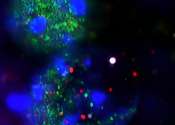Study finds that dopamine projections to the amygdala contribute to encoding identity-specific reward memories
Over the course of their lives, humans build subjective internal models outlining the associations between specific environmental stimuli and rewards that could be gained from interacting with them. These experience-based ...









